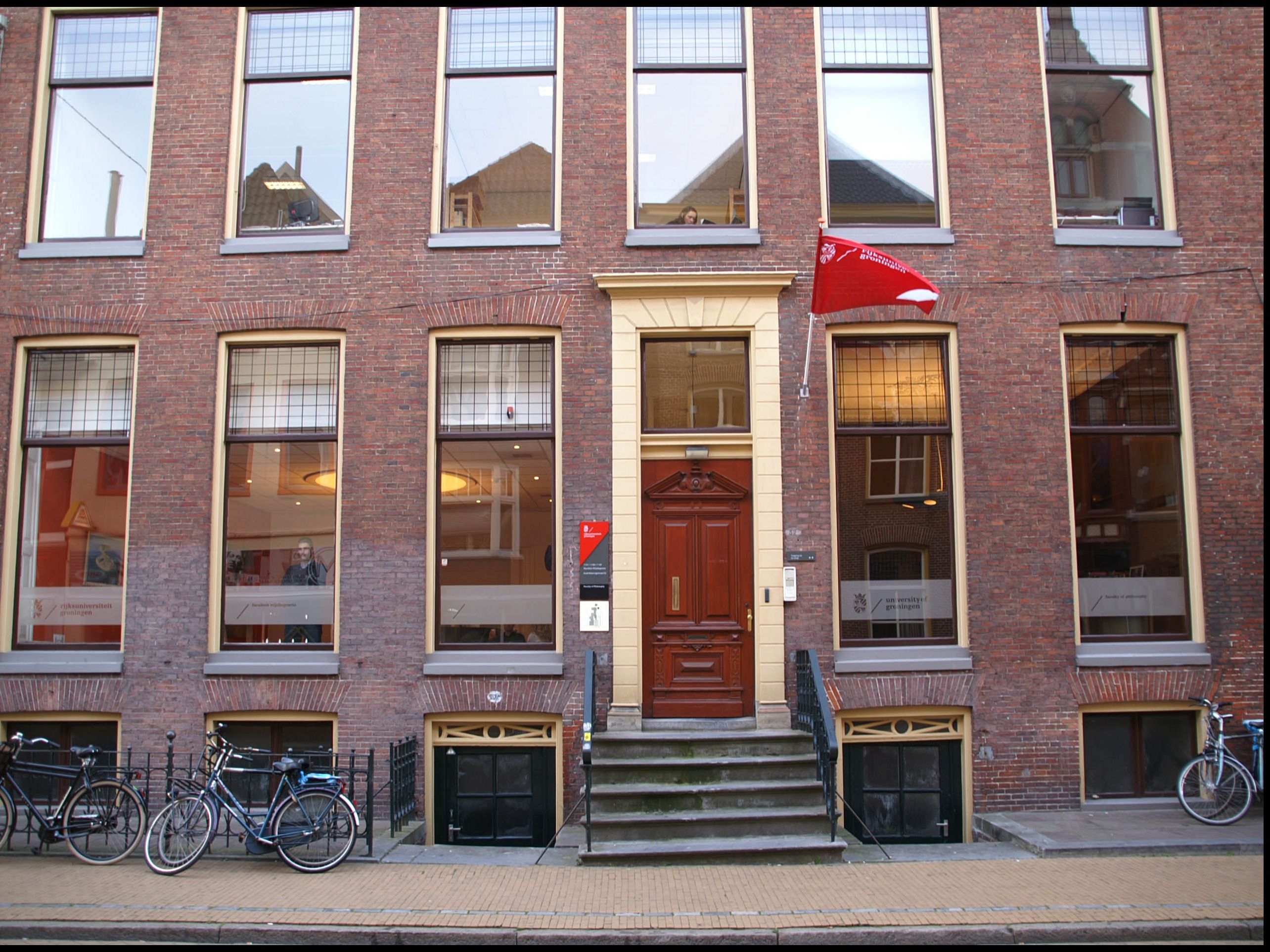Researchers, take back control over academic publishing!

Researchers, take back control over academic publishing!
The University of Groningen Library investigates plans to establish an open access publishing platform: the University of Groningen Press. This new platform could host journals but also publish monographs. We spoke to Daan Evers and Titus Stahl, two assistant professors at the Faculty of Philosophy, who are both thinking of publishing introductory textbooks with the University of Groningen Press. They spoke about the importance of books, the relevance of open access for an academic publication strategy, and the advantages and disadvantages of a local open access publisher.

Some people say that academic communication has completely moved to articles. How relevant are books to today’s scholarly communication?
Daan Evers (DE): I would say they are still very important in philosophy, alongside journal articles of course. Here I’m talking about research books, however: books aimed at an academic audience, so not intended for a broader audience.

Titus Stahl (TS): Books are probably still more important in philosophy than in other disciplines. In the Anglophone tradition of analytical philosophy, a lot of scholarly communication is in journals, while in other traditions books are still the main research product. There are also different research cultures, where books are valued differently: books are considered more important in Germany than they are in the Netherlands, where, in terms of research evaluation, one book is the equivalent of three or four journal articles.
Are books really necessary? Wouldn’t a journal article always be equally capable of bringing an argument across?
TS: You could of course argue that the long-form is not always necessary, but for some arguments you do need a book. For example, you can’t imagine Jürgen Habermas’s Theory of Communicative Action being explained in a single journal article.
You have both expressed an interest in writing open access introductory books for students that could be published by the University of Groningen Press . Why write such a book?
DE: Existing introductory books often have serious drawbacks for students. The ones in my field of metaethics in particular are too difficult for beginners. So it would be worthwhile developing material that really is suitable for students.
TS: There are numerous introductory books in political philosophy, but many are incomplete and often very one-sided in their presentation. I think students would benefit from a more pluralistic and comprehensive introduction to political philosophy, and this is not available.
DE: An open access book for students has advantages for teachers and students: as a teacher you can pick and choose material according to your own syllabus, and the material is freely accessible worldwide.
TS: No teacher wants their students to pay enormous amounts for their reading material, so I expect that many would like to assign open access books. But no commercial publisher would agree to publish an open access introduction for students, because publishers depend on sales. So you’d need a non-commercial publisher to make that possible.
But you have concerns about publishing with the University of Groningen Press. What concerns exactly?
DE: I’m still reluctant because the name University of Groningen Press has not yet been established as a reputable publisher, and this is relevant for research evaluation and the time invested in the book. It may not be used very widely.
What role could the University Library play in enhancing the reputation of the University Press? Do you think that it would be appropriate for the Library to ask faculties to account for the open access strategy in their evaluation policies?
DE: The Library shouldn’t have a say in research topics, but it is legitimate for it to recommend publication forms and strategies.
TS: I would assume that the Library has an intrinsic interest to look after the reputation of the University Press proactively. As for the second question, I think it would be worthwhile investigating whether the publication strategies of the faculties are compatible with the open access strategy of the University of Groningen (UG), because the move towards open access can only be achieved collectively. If the UG decides to place more emphasis on open access, it’s completely appropriate to ask the faculties to support that in their evaluation policies.
What would be attractive features of an open access publishing platform in terms of quality management, research metrics etc.?
TS: Metrics are difficult –download numbers are often not meaningful; at the end of the day it could just be me downloading my own articles. What actually counts in academia are the citation statistics that can easily be retrieved, for example, via Google Scholar. For textbooks, this does not play a major role. Here endorsements from well-known figures in the field, especially from other universities, carry most weight. For research publications, peer review is essential, of course. But if the Library wants to organize a formal review process for introductions too, that could also be interesting. For teaching-oriented materials, additional features such as a clickable bibliography and the possibility to publish ongoing updates would be attractive. In general, people must be able to find and access publications easily and in the format they prefer. For all publication forms, the marketing aspect is important, too.
Would publishing an open access textbook fit with your publication strategy?
DE: It definitely would if I had an independent publication strategy – which I can’t afford to have. From my own perspective, I would consider it a valuable contribution to the UG and academia in general.
TS: Textbooks are often not counted as output, which is regrettable. This is a very narrow view of what counts as an academic contribution and what doesn’t, and I don’t find it very productive. If you think that our job is to contribute to the academic debate, it should be acknowledged that an introductory book makes a greater contribution in terms of helping to educate new generations of researchers than a very specialized book that is only read by a handful of specialists.
More generally, we must defend academic freedom, which involves letting researchers decide for themselves which are the most effective ways to publish their work. The current evaluation mechanisms, which are very focused on controlling people, are unproductive for researchers. They are also unnecessary, as researchers have a self-interest in choosing appropriate and good publication outlets.
What are your views on open access publishing in general?
DE : I’m not on top of all the latest developments in this field. I don’t pursue a specific open access strategy. Whether my articles are available in open access or not is basically a coincidence. However, there is something odd about commercial publishing in academia. Authors – paid by universities – write articles, but the financial gains go to commercial publishers.
TS: An important aspect is surely the interest in having one’s publication accessible to everyone. The other aspect is researchers taking back control: most publishing houses are private commercial enterprises that have a lot of control over the academic publishing process without being accountable to anyone. Publishing in academia is how people build a reputation. But academics don’t have control over the publication process and have thus lost control over the production of academic knowledge. If open access leads to an alternative to this commercial system, this increases my sympathies towards the open access idea even more.
DE: I agree, we would need scholar-led open access publication channels.
The VSNU (the Association of Universities in the Netherlands) has specific deals to make all Dutch scientific articles accessible in open access. What do you think can be done beyond that to facilitate the move towards open access?
TS: When talking about open access policies, we often speak only about researchers submitting publications. But another central aspect is the refereeing work which researchers do for free and without which most journals could not survive. If we think that open access is more in researchers’ interests, they should also be encouraged to stop refereeing articles for closed journals. The advantage of this strategy is that it allows people to do the right thing and to reduce their workload at the same time.
With regard to the green open access efforts of the UG, researchers often object to the requirement to archive their publications in Pure [the UG’s research database] because they already use academia.edu.
DE: Academia.edu is handy for informing colleagues about new publications and keeping up-to-date with what’s happening internationally in my research field.
TS: Academia.edu is also a commercial platform which exploits the free work of academics and doesn’t have their best interests in mind. Pure is better in the sense that it is controlled by ourselves, but it lacks the social aspect where my network is notified about recent publications. I also use non-commercial channels like PhilPapers and Humanities Commons to reach my audience. If Pure was able to automatically import my publications from these sites that would save me a lot of work.


